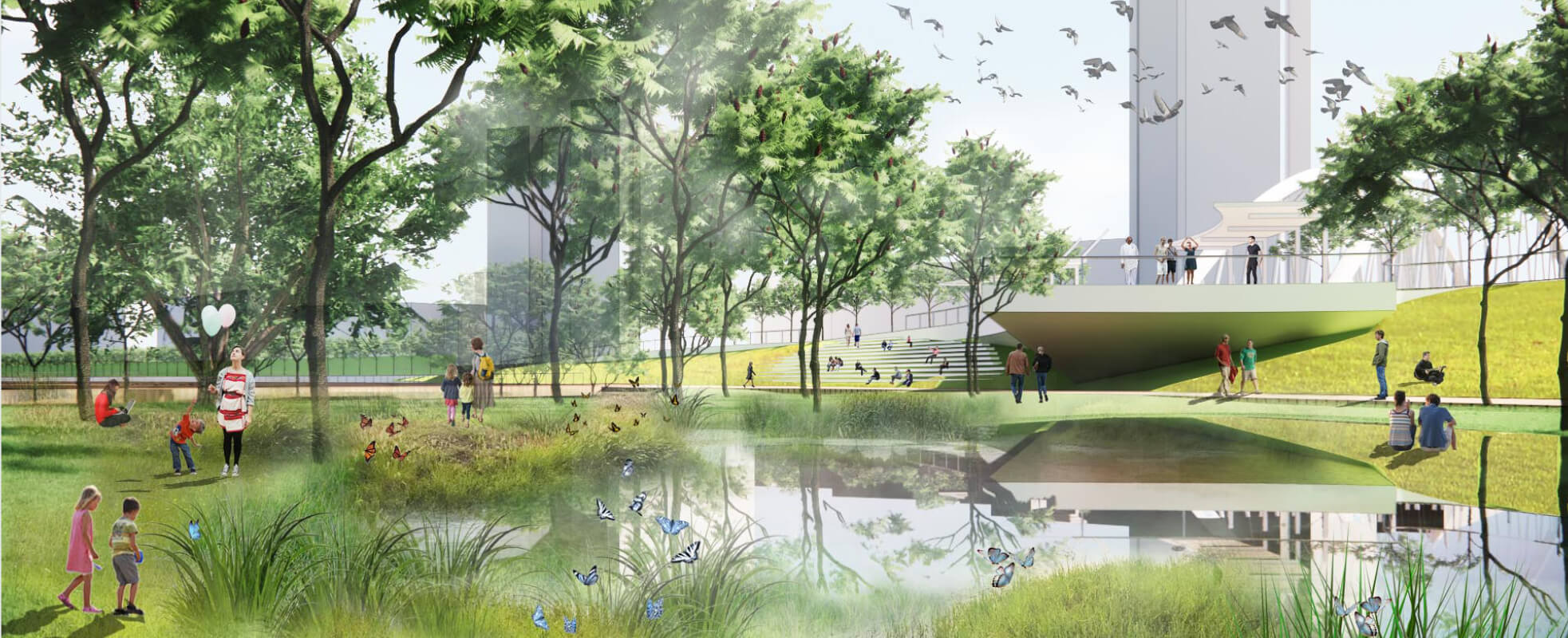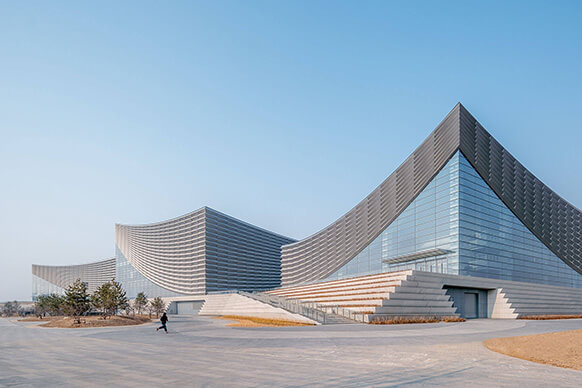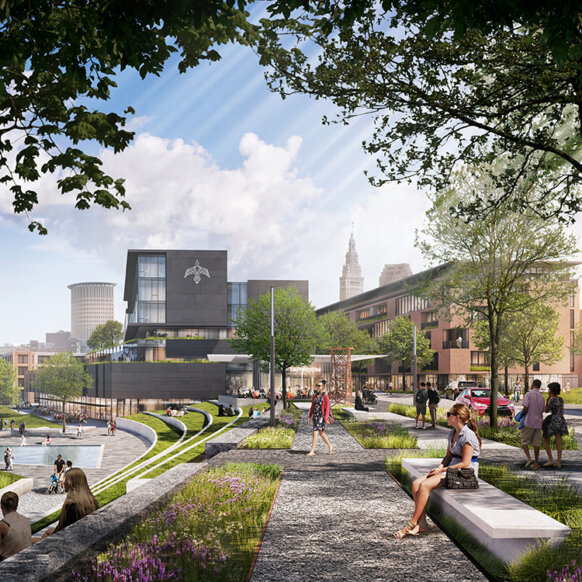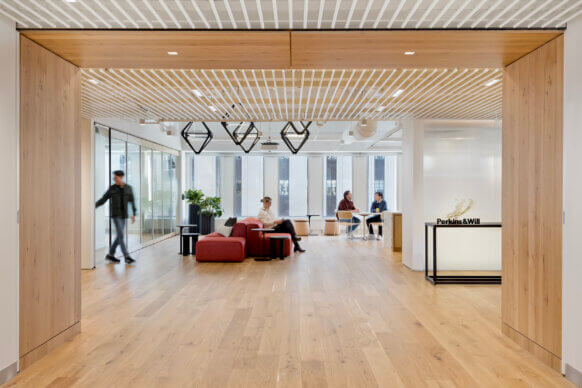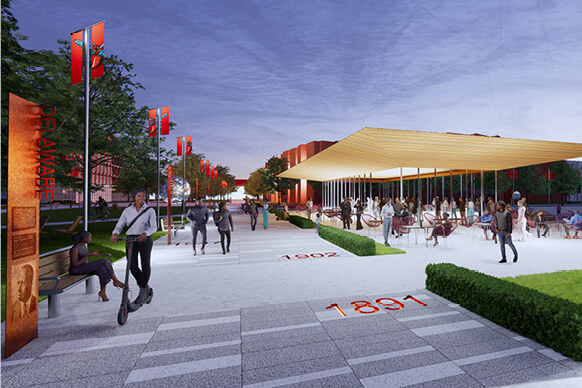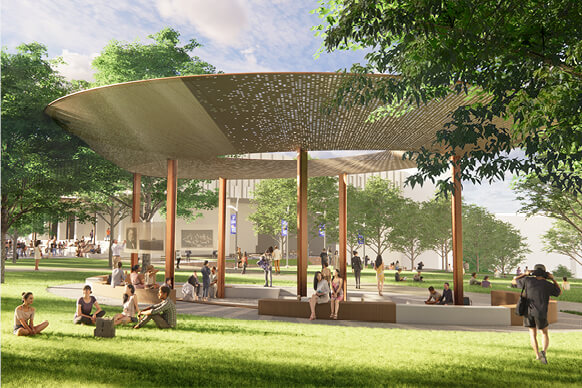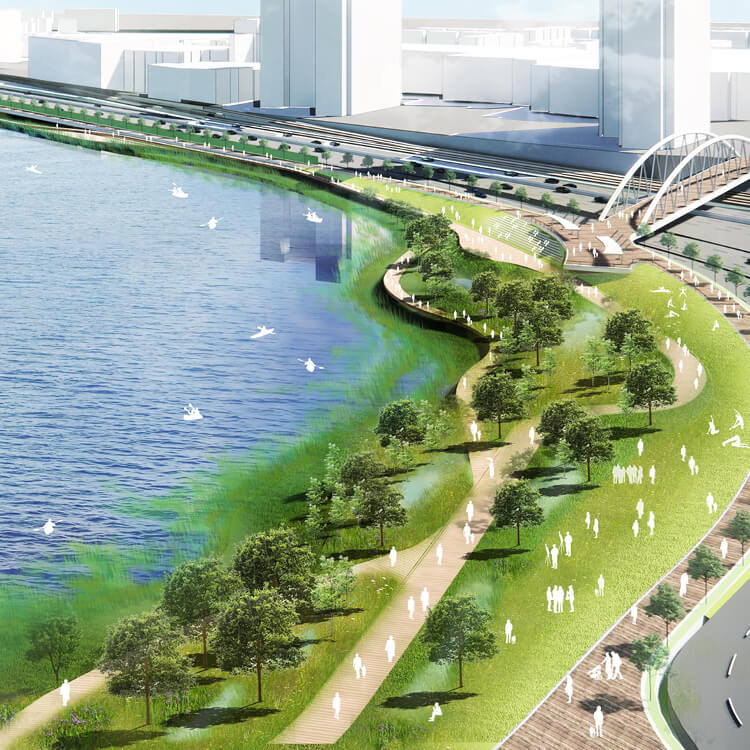
Charles River: A Living Shoreline
The Charles riverfront in Allston, Massachusetts is framed by numerous planned development opportunities, with new commuter and Grand Junction rail stations anticipated to dramatically improve connectivity between innovation hubs in Cambridge, Kendall Square, and Boston. However, the developments have collectively ignored the requirements of the Charles River to function as a healthy hydrological ecosystem.
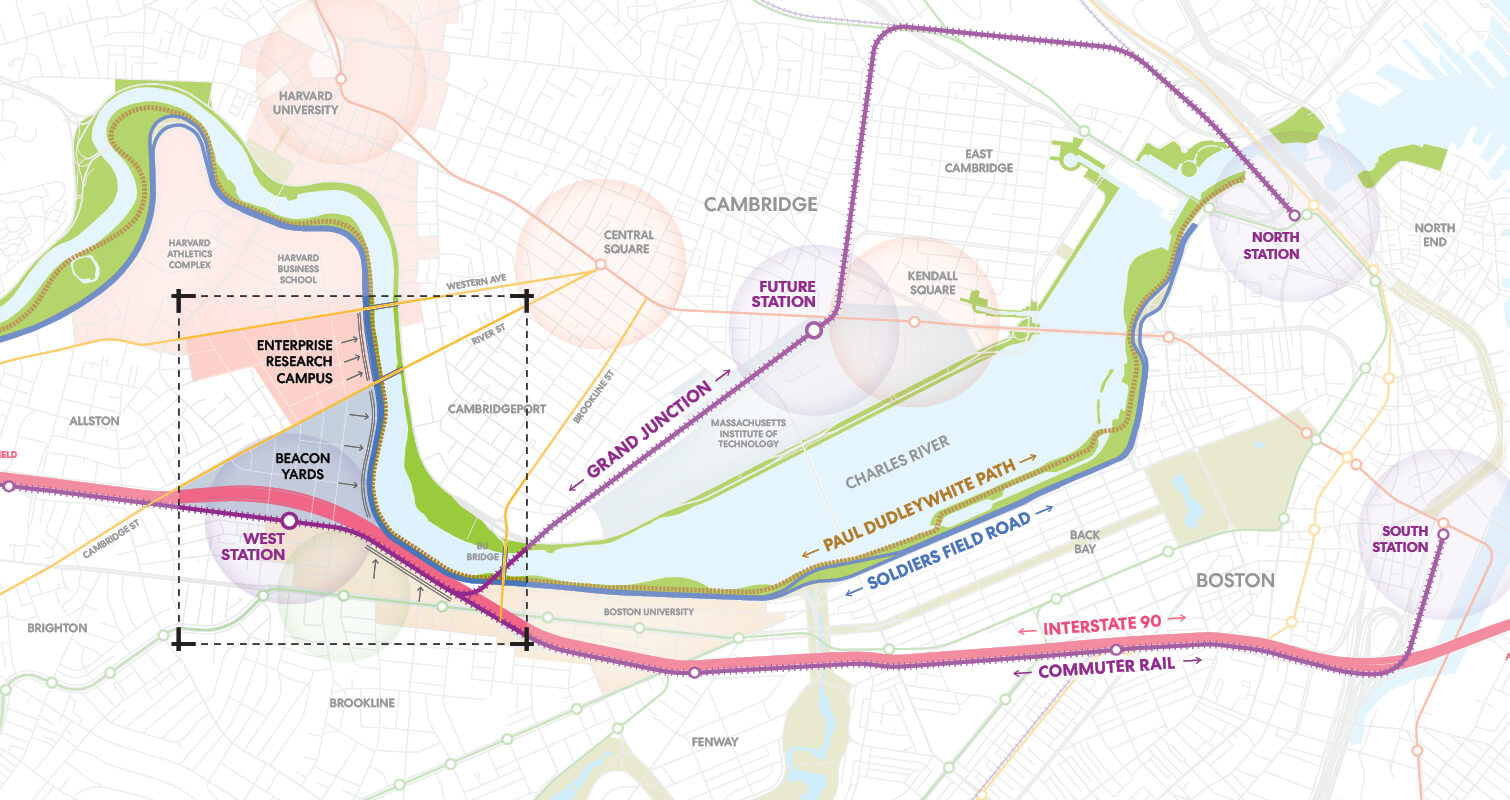
Reconstructing the I-90 viaduct where the highway most closely approaches the river holds the potential to expand public access through the park’s most spatially comprised segment. Shifting focus to restoring aquatic health and enhancing connectivity reframed the conversation around ecological and community benefits, building consensus among advocates.
Our framework plan reinvigorates landscape systems, thus increasing climate change resiliency, mitigating pollutant discharge, and connecting surrounding communities to the riverfront. These distinct yet interwoven goals will be implemented with the strategic implementation of ecological shoreline restoration, enhanced bio-diversity, and the creation of resilient embankments.
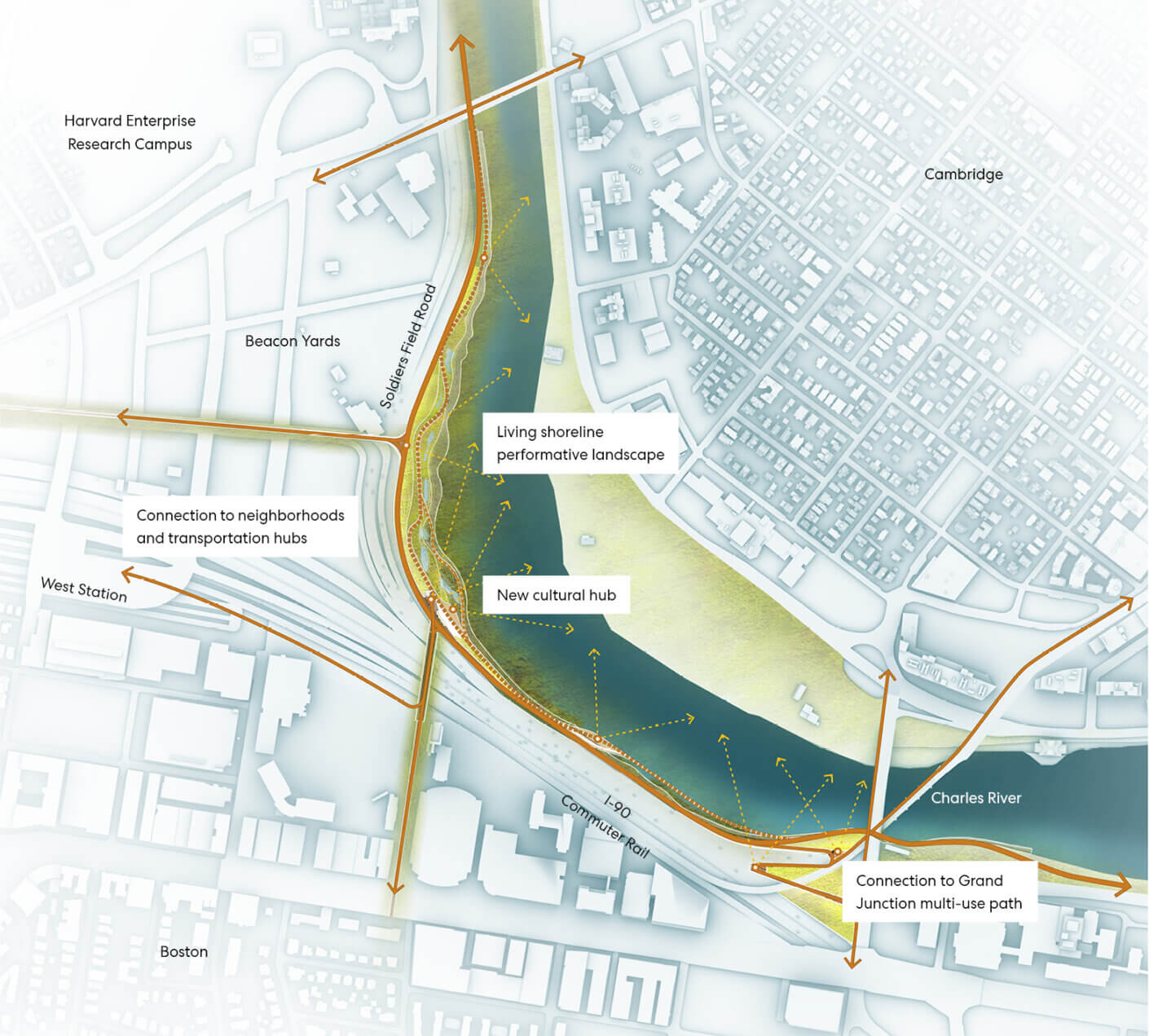
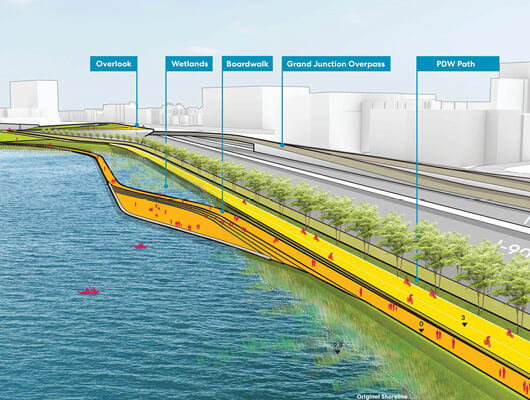
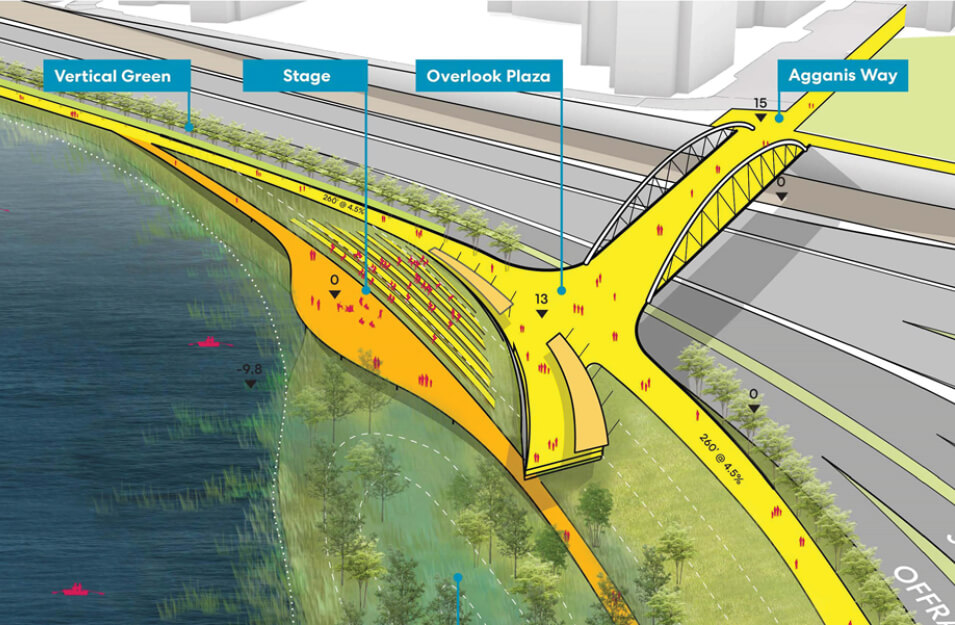
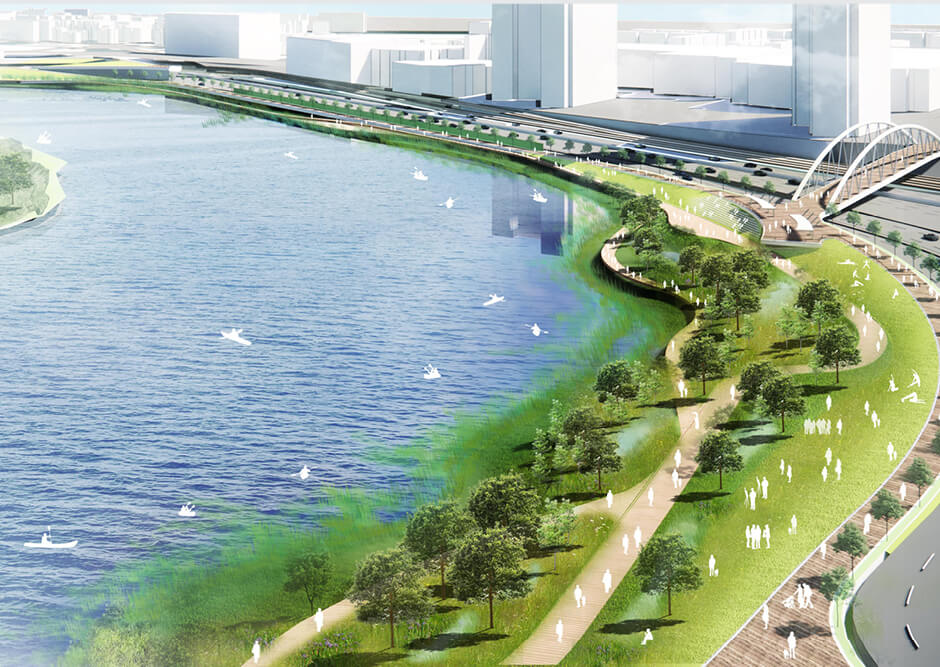
We employed a scientific and data-driven approach to understand how habitat, ecology, hydrology, mobility, and civic access interconnect and can be productively woven together. On behalf of advocacy groups including the Commonwealth of Massachusetts, local design communities, public agencies, and private institutions, including multiple college and university campuses, this study raises awareness of transportation infrastructure’s potential to address numerous challenges and build consensus holistically.
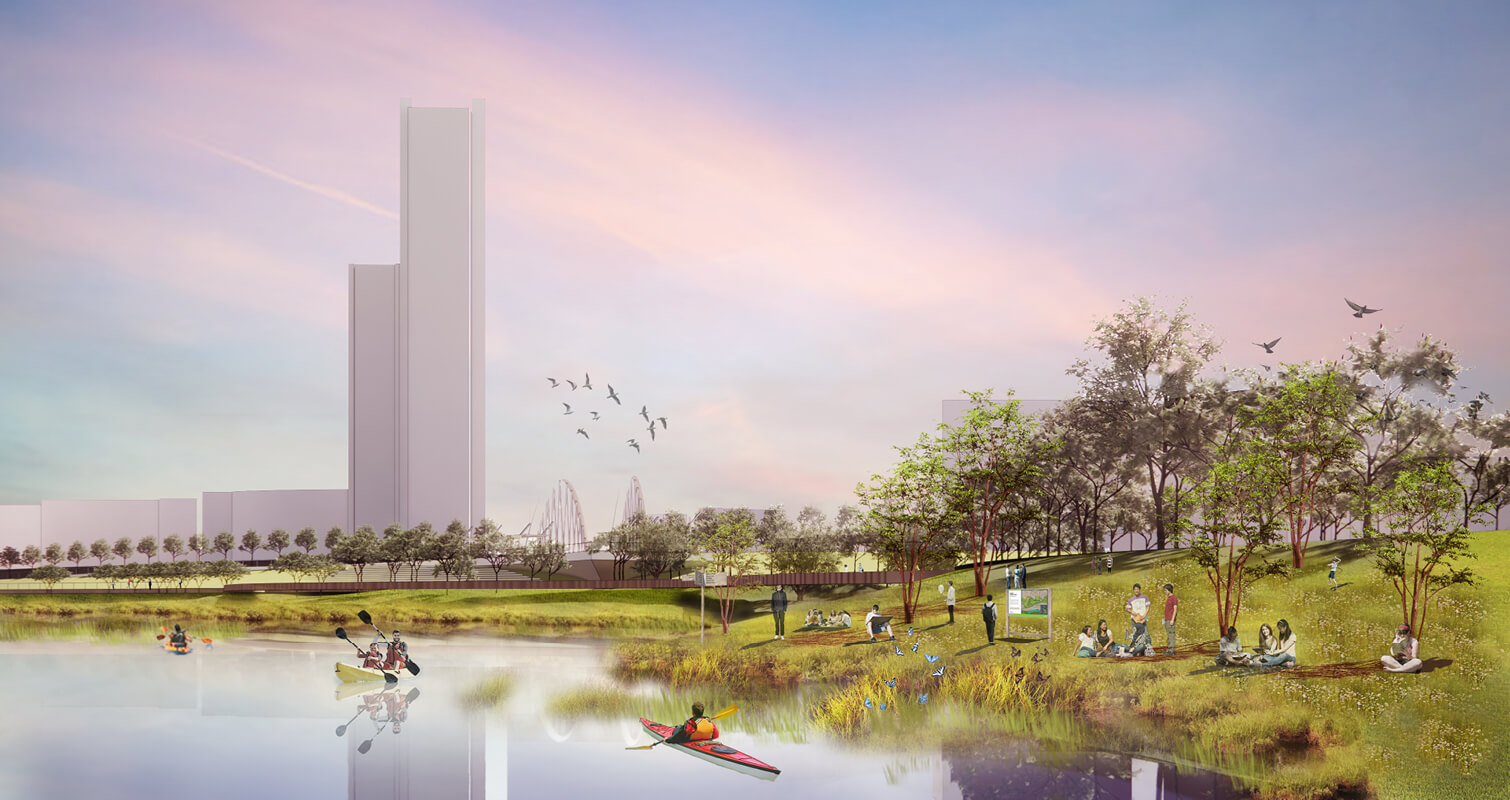
Our framework plan reinvigorates landscape systems, thus increasing climate change resiliency, mitigating pollutant discharge, and connecting surrounding communities to the riverfront.
